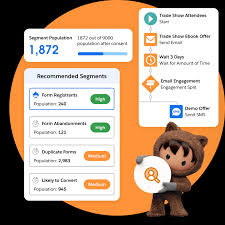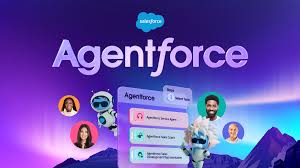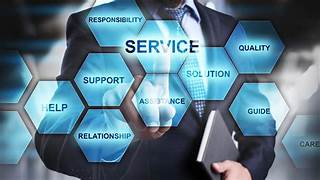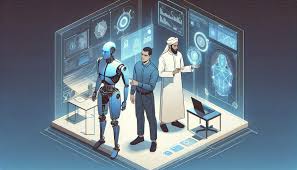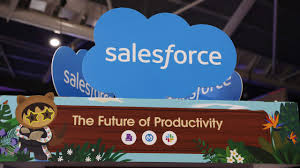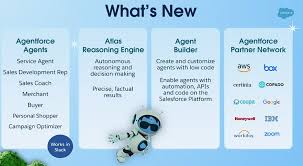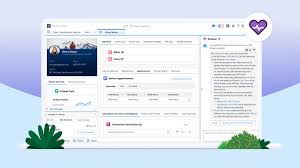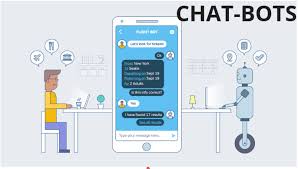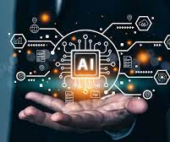Salesforce Unveils ‘Agentforce’ to Empower a Billion AI Agents by 2025 Salesforce has introduced Agentforce, a revolutionary suite of autonomous AI agents aimed at transforming service, sales, marketing, and commerce sectors. With Agentforce, companies can rapidly scale their operations, boost efficiency, and elevate customer satisfaction by leveraging intelligent agents that handle routine tasks and complex workflows. The Agentforce Atlas Reasoning Engine powers these agents, autonomously analyzing data, making decisions, and completing tasks. This engine enables organizations to easily build, customize, and deploy their own agents using intuitive low-code tools. In addition, the Agentforce Partner Network allows customers to integrate pre-built agents from industry leaders like AWS, Google, IBM, and Workday, offering even more flexibility. Real-world impact Companies like OpenTable, Saks, and Wiley are already deploying Agentforce within their existing systems to enhance workforce capabilities and scale operations. Agentforce works autonomously, retrieving the right data on demand, building action plans, and executing them without human intervention. However, when needed, it can seamlessly hand off tasks to human employees, providing an overview of interactions, customer details, and suggested next steps. For example, Wiley has reported a 40% increase in case resolution after implementing Agentforce to handle routine inquiries. During busy seasons, like back-to-school, Agentforce has helped Wiley streamline operations, freeing up employees to handle more complex cases. Saks is also leveraging Agentforce to elevate its personalized customer experiences, empowering employees with real-time insights to deliver exceptional service. A new era of AI-driven customer success Salesforce CEO Marc Benioff is confident that Agentforce represents the third wave of AI, surpassing traditional chatbots and copilots with its fully autonomous capabilities. “Agentforce is a revolutionary and trusted solution that seamlessly integrates AI across every workflow, embedding itself deeply into the heart of the customer journey. This means anticipating needs, strengthening relationships, driving growth, and taking proactive action at every touchpoint,” Benioff said. Unlike its predecessors, Agentforce operates independently, adapting to changing conditions using real-time data. Whether responding to a customer service inquiry, qualifying sales leads, or optimizing marketing campaigns, Agentforce makes timely, relevant decisions based on an organization’s custom settings. When more human oversight is required, the platform provides detailed summaries and recommendations to assist employees in making informed decisions. Agentforce’s scalability and future Salesforce’s ambitious goal is to empower one billion AI agents by the end of 2025. This bold vision stems from the understanding that 41% of employee time is often spent on repetitive, low-impact work, according to the Salesforce Trends in AI Report. By automating these tasks, Agentforce allows employees to focus on more strategic, high-value initiatives, creating a hybrid workforce that is more effective and adaptable. Benioff noted, “While others require you to DIY your AI, Agentforce offers a fully tailored, enterprise-ready platform designed for immediate impact and scalability. Our vision is bold, and this is what AI is meant to be.” As businesses worldwide continue to explore AI’s potential, Agentforce positions Salesforce as a leader in the next wave of AI innovation, where autonomous agents enhance every facet of business operations. With over 1,000 agents already active, the future of work is a dynamic blend of human expertise and AI-powered agents, enabling organizations to thrive in an increasingly competitive landscape. Like Related Posts Salesforce OEM AppExchange Expanding its reach beyond CRM, Salesforce.com has launched a new service called AppExchange OEM Edition, aimed at non-CRM service providers. Read more The Salesforce Story In Marc Benioff’s own words How did salesforce.com grow from a start up in a rented apartment into the world’s Read more Salesforce Jigsaw Salesforce.com, a prominent figure in cloud computing, has finalized a deal to acquire Jigsaw, a wiki-style business contact database, for Read more Service Cloud with AI-Driven Intelligence Salesforce Enhances Service Cloud with AI-Driven Intelligence Engine Data science and analytics are rapidly becoming standard features in enterprise applications, Read more


